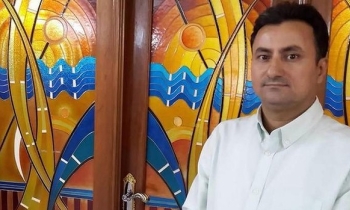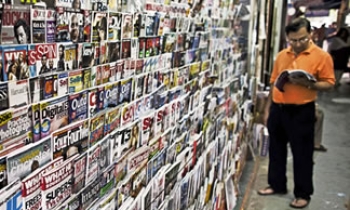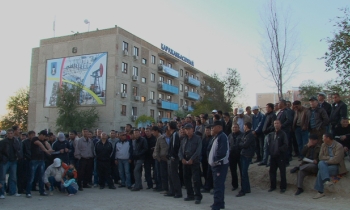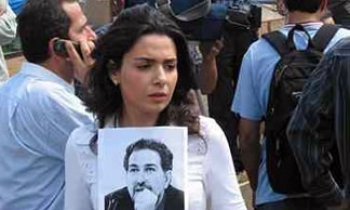THE outcry over the Islamic cartoons published by Denmark's leading newspaper, Jyllands-Posten, had escalated into the biggest Danish foreign policy crisis since World War II, Hans-Henrik Holm, the professor of international relations at the Danish School of Journalism and Aarhus University, said yesterday.
Professor Holm said the crisis was completely unforeseen by the editors of the newspaper when they published the cartoons in September last year.
"It has involved the burning of several Danish embassies and the withdrawal of personnel from Middle Eastern countries and now it has changed the international perception of Danish foreign policy," he said.
"Traditionally, Danish foreign policy was perceived in the outside world as consensus oriented, with a large aid budget and a country which primarily supported the United Nations.
"The cartoons have brought home that this has changed. It began when we entered the Iraqi war along with Australia and the US and Britain, but most people in the world did not really see Denmark and Australia.
"When the cartoons appeared it was like a jigsaw coming together and people saw Denmark as a country where there was some confrontation with the Muslim world.
"The foreign policy crisis became a crisis of image, and in the Middle East Danish flags are still being burned."
Professor Holm said in the Middle East Denmark was now seen, incorrectly, as a "crusading" country that was out to vilify Muslims.
"Some Danish journalists now, when they travel in the Middle East, say that they are German," he said. "If anyone had ever told me that Danish journalists would be travelling around claiming to be Germans, I would not have imagined it."
Jyllands-Posten initially came under attack and several cartoonists went into hiding after the newspaper published the series of 12 cartoons, or illustrations, of the prophet Mohammed. Islam holds that it is blasphemous to make images of the prophet.
The newspaper, which has since been threatened with bombing, published the cartoons after a Danish author complained that he could find no one to illustrate his book about Mohammed. Jyllands-Posten speculated about self-censorship regarding Islam in Denmark and asked 12 illustrators to draw the prophet for the paper. The editor, Carsten Juste, said the cartoons were a test of whether the threat of Islamic terrorism had limited the freedom of expression in Denmark. The publication initially led to outrage among the Muslim immigrants living in Denmark. Five thousand of them took to the streets to protest. Muslim organisations demanded an apology, but Juste rejected the idea: "We live in a democracy. That's why we can use all the journalistic methods we want to. Satire is accepted in this country and you can make caricatures," he said.
Flemming Rose, the cultural editor at the newspaper, denied the purpose had been to provoke Muslims. "It was simply a reaction to the rising number of situations where artists and writers censored themselves out of fear of radical Islamists," he said, "Religious feelings cannot demand special treatment in a secular society."
Since then the paper's editor-in-chief has apologised for causing offence and said the cartoons should not have been published.
Professor Holm, in Sydney to speak at the Lowy Institute for International Policy, said that while he didn't find the cartoons offensive ("I don't have a strong relationship with the prophet"), he would not have published them had he been in the editor's seat at Jyllands-Posten.
"But the drawings, the cartoons, were not nearly as offensive as one could have imagined them to be," he said. "For example, there was nobody pissing on the Koran. There were drawings that equated the prophet Mohammed with terrorism, but there were also drawings that made great fun of the newspaper. One said: 'The editor of Jyllands-Posten is a reactionary old bastard' in Arabic."
Professor Holm said the lesson to be learned was that the "national enclosures" in which we lived were not as enclosed as they once were.









